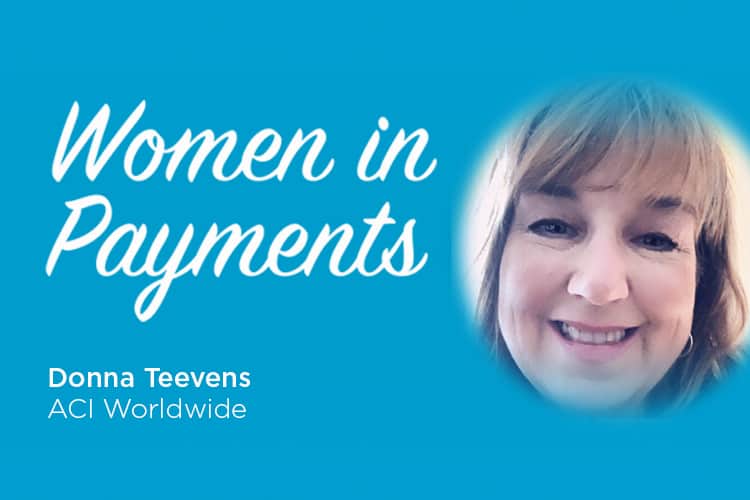World Day for Cultural Diversity for Dialogue and Development, which takes place each year on May 21, aims to not only highlight the richness of the world’s cultures, but also the essential role of intercultural dialogue. As a global company operating across six continents, communicating effectively with teammates and customers across cultures is part of the gig for thousands of our employees around the world. We talked to four ACIers, with diverse roles and backgrounds, to share with us their own views on working across cultures and as part of cross-functional global teams. Here are some of the highlights:
Leo Escobar, Head of LATAM
My role is to take care of ACI’s business in Latin America. I am based in Bogota, Colombia now, but I’ve lived in more than ten cities in six counties, including the U.S., U.K., Colombia, Chile, Ecuador and Spain. Previously my role at ACI involved leading solution consulting teams working across Asia, Africa, the Middle East, Europe and Latin America… so I certainly consider myself well versed in cultural differences, not to mention having appreciation for the food, history, beliefs and ways of doing across cultures.
When a manager takes on a role that has multicultural nuances, and team members in different parts of the world, I think one thing that we need to remember – and I think it’s one of the nice lessons that I have learned – is there are so many ways of doing things, right? There are so many ways of thinking about things, of what “good” looks like. I believe as managers we need to become enablers, and we need to become more open to listening and to understanding how things work in different regions and different countries and teams. And we need to try not to bring our own bias. That means striving to be open, trying to listen, respecting the differences – operating at a minimum noise level.
Juliana Rahmad, operations director
I’m based in Singapore now – the foodie nation – and the country itself is very multicultural. One thing that I’ve learned is that it’s important to communicate at the pace of the person with whom you’re communicating. For example, with a team where English is not the first language for the majority. Also, when I was based in the U.K., despite London and Singapore both being very cosmopolitan cities, I had to learn that things did not necessarily move as quickly. I had to learn to be patient. If you’ve ever been to Singapore, or live in Singapore, you learn that Singaporeans try to be as efficient as possible. We eat fast, we talk fast, we walk fast. Time is money!
Despite these differences, I do think the exposure that I had earlier on during my career to working with other cultures helped me be more adaptive professionally when it came to living and working in in the U.K. So, in a professional sense I didn’t experience such a big culture shock.
Working across cultures, I try to find a balance between speaking up, as well as listening, which is
actually much more difficult. If you have the opportunity to work with people in many Asian cultures, at least in my generation, culturally we were brought up not to speak up unless we were told to. This is why sometimes it’s especially important to ask questions and to listen.
Somya Patnaik, principal product manager – real-time payments
One of ACI’s strengths is the diversity of our teams around the world, but this global diversity can present certain challenges as we work together across different cultures. I’ve been working for ACI for nearly four years now, but I moved from India to the U.K. a few months back and I am in the middle of a sort of cultural transition myself.
Back when I joined ACI, I could identify some cultural differences between a global company like ACI versus working in an Indian company. In some cultures, people are not very direct or straight forward when it comes to giving their feedback – and this was an initial challenge for me too. I would look for polite ways of giving feedback or most importantly saying no. Social conversations could be awkward in the beginning, because when you are from the same culture or background you can usually rely on some basic assumption… you know, it’s hard to find anybody in India who doesn’t follow cricket! Now nearly four years later and the small talk and conversations are so much easier.
Anoop Koshy Philip, senior project manager
I currently manage the cloud enablement program, which requires working with teams around the globe. I am now based in Limerick, Ireland, but I’ve worked in several different countries, starting my career in India before moving to the U.S., and later the U.K. In my experience, with every move to a different country, there have been big changes that I’ve had to adapt to – both professionally and personally. In both cases, I think it’s important to speak up – you need to ask to help understand the cultural aspects of the country you are moving to so that you can adapt. We cannot expect things will always work in the way that we are used to, so it’s hugely important to enquire and understand what these differences are.
Also, I think that whenever the teams are diverse, and have different perspectives, it really sparks innovation and sparks creative thinking, when these different perspectives come together. It’s really important to be open-minded and welcome different perspectives. We should all work to make sure that everyone has a voice in the team.




